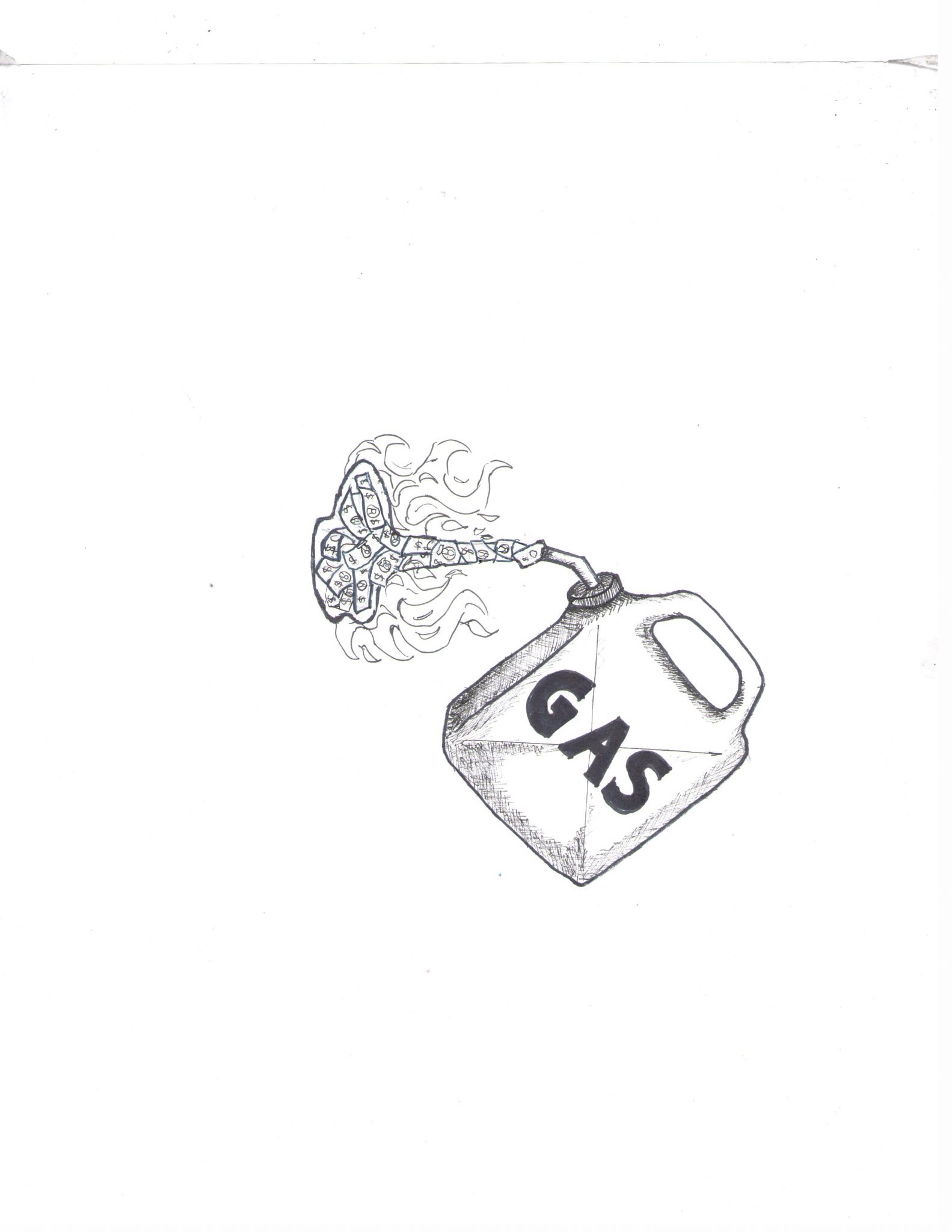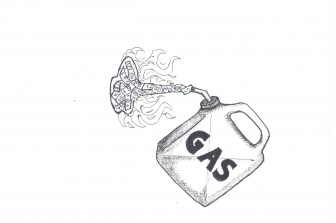
According to the Los Angeles Times, California has experienced the “one of the lowest-priced summer driving seasons in a while” as a result of the constant abundance of gasoline supply. Between April and September of this year, gasoline cost an average of $2.45 per gallon, nearly a third less than it did a year ago. Even though this creates a heavy demand for gasoline, the U.S. Energy Information Administration reported that the United States was the world’s largest producer of petroleum in 2014. This decline in gas prices has fueled debate about environmental and oil regulations.
Advanced Placement Environmental Science Teacher Megan Thaler strongly opposes the decline in gas prices because of the damage oil can do to the environment and. She says, “Oil is nonrenewable, and can only be [replenished] every 100 years. It is only a certain amount of time until the oil supply runs out. However, solar and wind powers are renewable, and if we [focus] our attention [on] bringing more electric, hybrid cars [to the market], then there will be less pollution and less potential environmental disasters in the near future.”
Senior Casey Vanderlip, who has to pay for his own gas, understands the significance of the gas prices declining in his life. He says, “The decrease in gas prices will have a direct influence in my life definitively, since I have to pay for my own gas … Before, I would have to worry about budgeting my money wisely and not driving so much to pay for gas. I would have to worry about the distance traveled and how far and often I would drive. Now, because of [lower gas prices], I can drive more freely and be more tempted to drive to farther places without stressing over gas prices.”
Senior Caroline Mameesh also finds driving to be a necessity. She says, “Driving has helped me set my own schedule. Driving is very convenient in my life because it gives me more freedom to leave to events at an earlier time. Also, I do not waste time having to wait for my parents to pick me up at school; I can leave school anytime I want and use [the] extra time available to fit more into my day, such as driving to [my] local barn and [practicing] horseback-riding or going to my internships.”
Junior Zvonimir Jarak, a student from Thaler’s AP Environmental Science class, agrees that the gas prices will harm the environment by promoting more driving. He says, “It is important … to keep the environment in check by implementing a reasonable gas price. If the gas prices are low, people will abuse their driving privileges and will not listen in helping the environment. This follows a great example I learned in AP Environmental Class known as Tragedy of the Commons, where individuals within a society selfishly abuse a common resource for their own benefits.”

Mameesh points out several methods of helping the environment in our everyday lives, which include raising gas prices. She says, “I believe raising the gas prices will help protect the environment because it will monitor … how far and how often [people] go. By raising the gas prices, people will be more cautious of the choices they are making and probably will not take long unnecessary drives. Another way we can help the environment is by carpooling. If more people carpool to school, then there will be less cars driven, and thus less pollution will be released in the atmosphere. I also strongly suggest public transportation because there will only be one vehicle driving all of these people to the same destinations, rather than several amounts of vehicles driving at once.”
Thaler asserts the importance of educating young individuals about the consequences of gas onto the environment and thinking of long-term solutions. She says, “I strongly do not believe in lowering the gas prices. Think about the environment. Sometimes, you have to care about the long-term solutions, such as the future, rather than short-term solutions. There are severe consequences of climate change and extreme weather, if there [is] a high usage of gasoline. If we do not focus our priorities [on] thinking about how [gas usage] will affect the environment [it will] eventually … [result in] a lot of environmental disasters, some too big to ignore. I advise that the only way to demand people about the importance of environment in our lives is to increase the gas prices. This will make people begin to start thinking about the environment if it is affecting them economically.”



